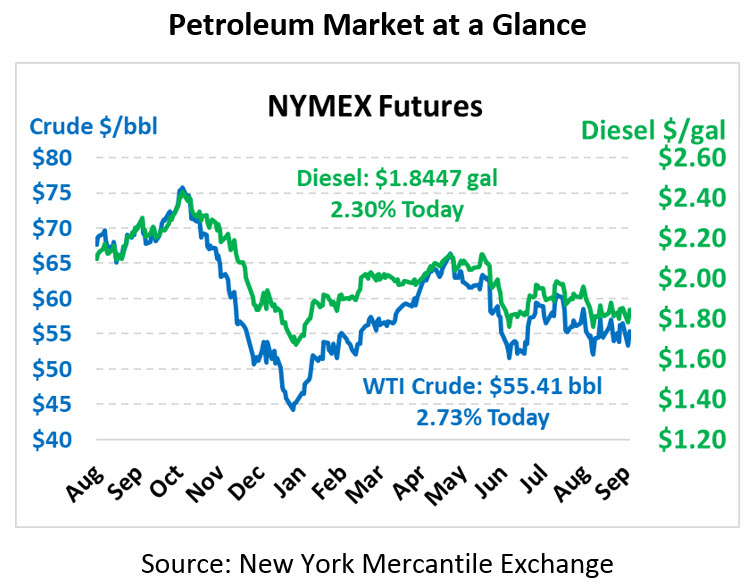
Mid-Week Review
New Report: Can Renewables Replace Oil?
The future is not looking bright for oil, according to a new report that claims the commodity would have to be priced at $10-$20 a barrel to remain competitive as a transport fuel. The new research, from BNP Paribas, says that the economics of renewable energy make it impossible for oil to compete at current prices. The author of the report, global head of sustainability Mark Lewis, says that “renewable electricity has a short-run marginal cost of zero, is cleaner environmentally, much easier to transport and could readily replace up to 40% of global oil demand”.
Oil Production Growth in U.S. Grinds To A Halt
Lower oil prices and ongoing financial stress in the U.S. shale industry are creating headwinds for drillers, and it appears increasingly likely that supply growth could undershoot forecasts. U.S. oil production fell in June to 12.082 million barrels per day (mb/d), according to new data released by the EIA on Friday. That is a decline of 33,000 bpd from May – not a huge drop off, but a decline nonetheless. In previous months, maintenance at offshore oil fields made up a big chunk of the declines. While the overall figures for the entire U.S. appeared to disappoint, temporary declines offshore masked ongoing growth in the Permian. But this time around, blame cannot simply be pinned on offshore maintenance.
Iran oil tanker pursued by US turns off tracker near Syria
An Iranian oil tanker blacklisted and pursued by the U.S. turned off its tracking beacon off the coast of Syria, leading to renewed speculation Tuesday that its oil will end up there, despite earlier assurances it wouldn’t. The disappearance of the Adrian Darya 1, formerly known as the Grace 1, follows a pattern of Iranian oil tankers turning off their Automatic Identification System to try and mask where they deliver their cargo amid U.S. sanctions targeting Iran’s energy industry.
Sanctions choke Iran’s crude sales, but oil product exports booming
While U.S. sanctions on Iran’s oil industry have slashed the OPEC member’s crude exports by more than 80%, oil product sales from the Islamic Republic remain strong at nearly $500 million a month, shipping data and Reuters calculations show. Sanctions have barely affected Iran’s exports of oil products, primarily fuel oil used for power generation and shipping as well as liquefied petroleum gas (LPG) used as cooking gas and petrochemical feed. Iran’s product exports reached their highest level in August, oil minister Bijan Zanganeh was quoted as saying by a lawmaker after a parliamentary meeting on Aug. 27. “In exports of products we have no problem,” Zanganeh was cited as saying.
This article is part of Daily Market News & Insights
Tagged:
MARKET CONDITION REPORT - DISCLAIMER
The information contained herein is derived from sources believed to be reliable; however, this information is not guaranteed as to its accuracy or completeness. Furthermore, no responsibility is assumed for use of this material and no express or implied warranties or guarantees are made. This material and any view or comment expressed herein are provided for informational purposes only and should not be construed in any way as an inducement or recommendation to buy or sell products, commodity futures or options contracts.





